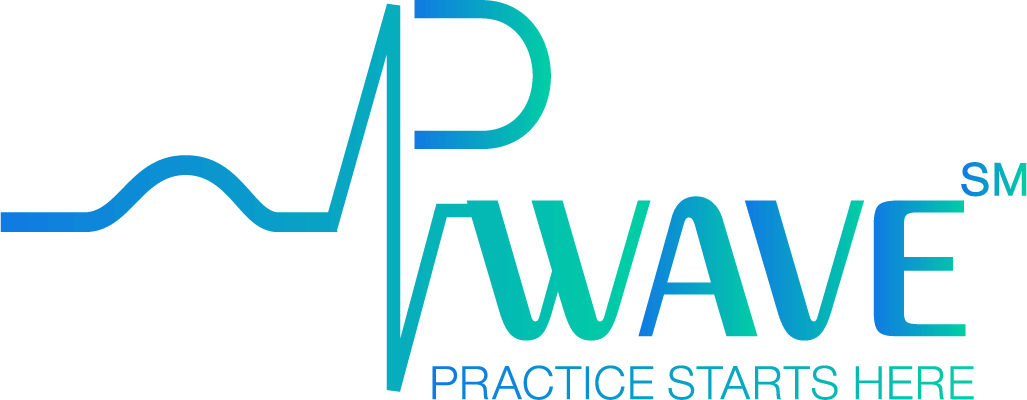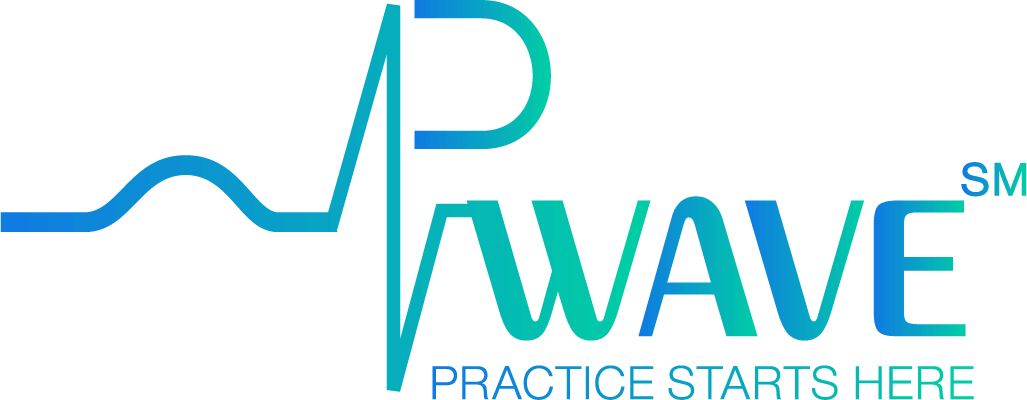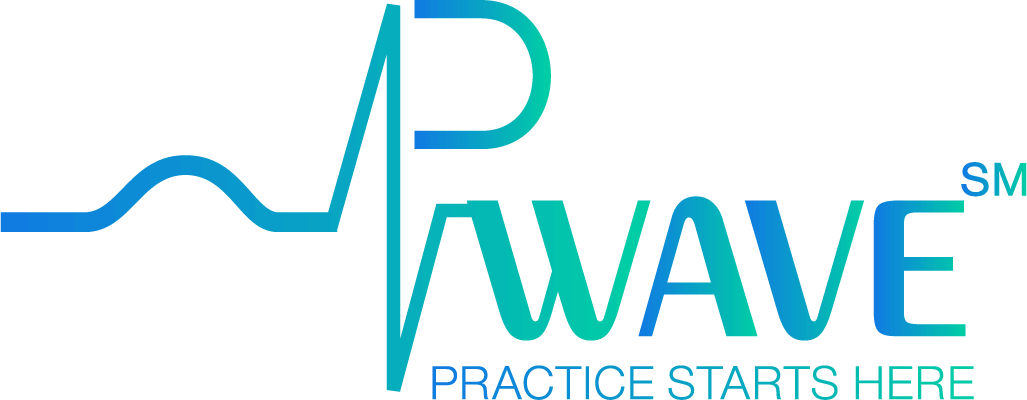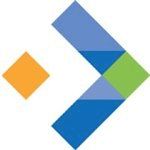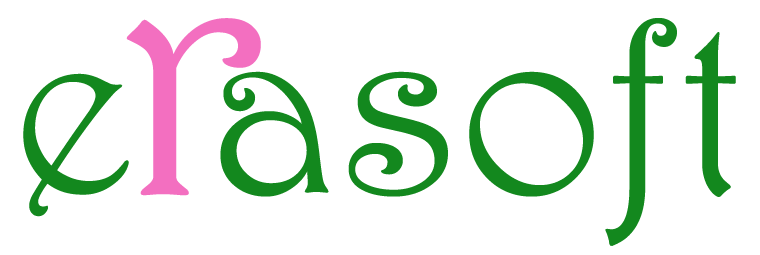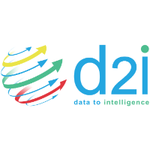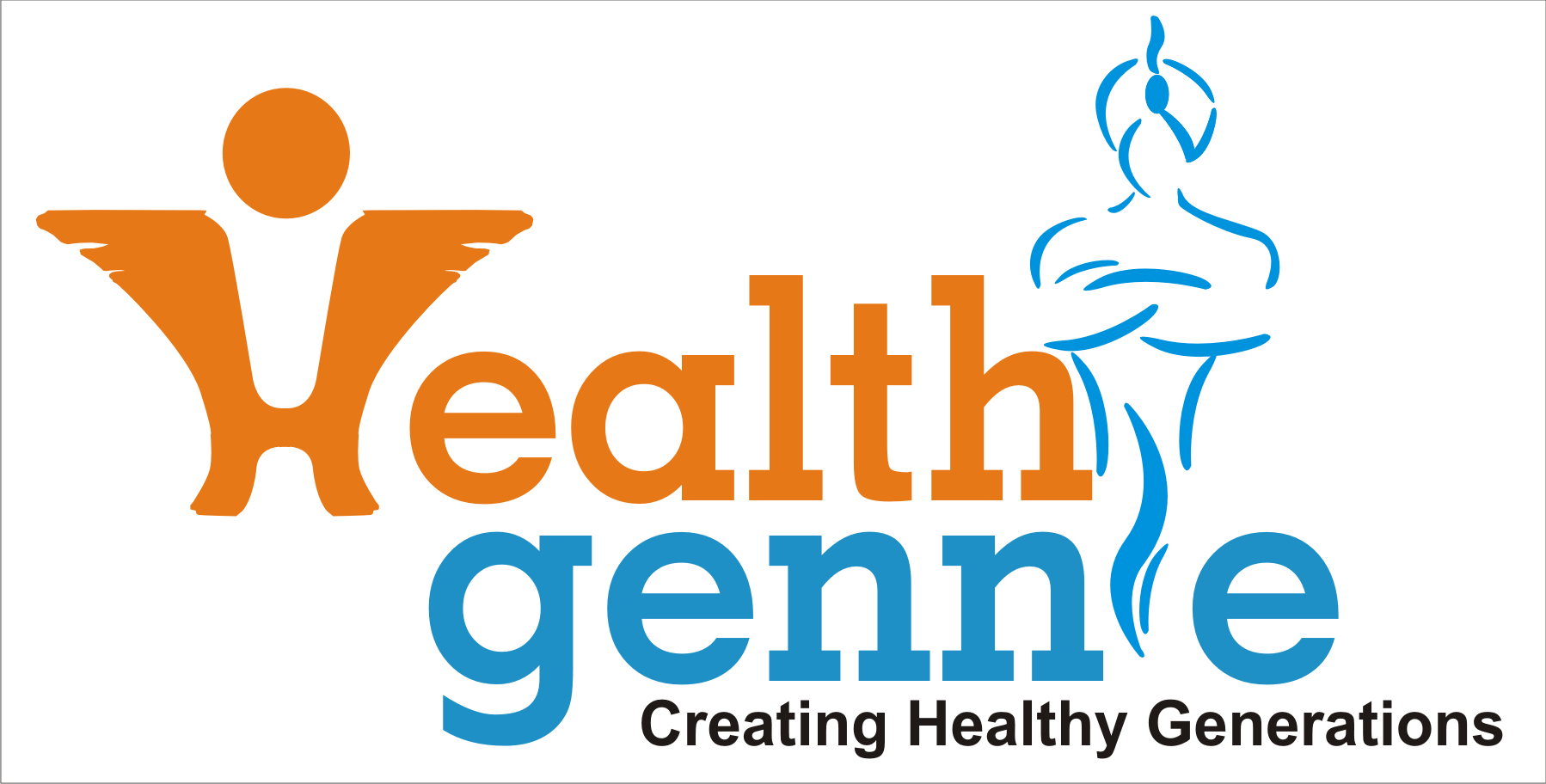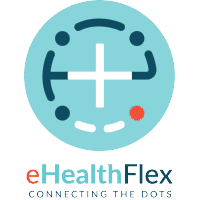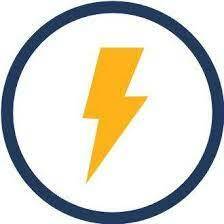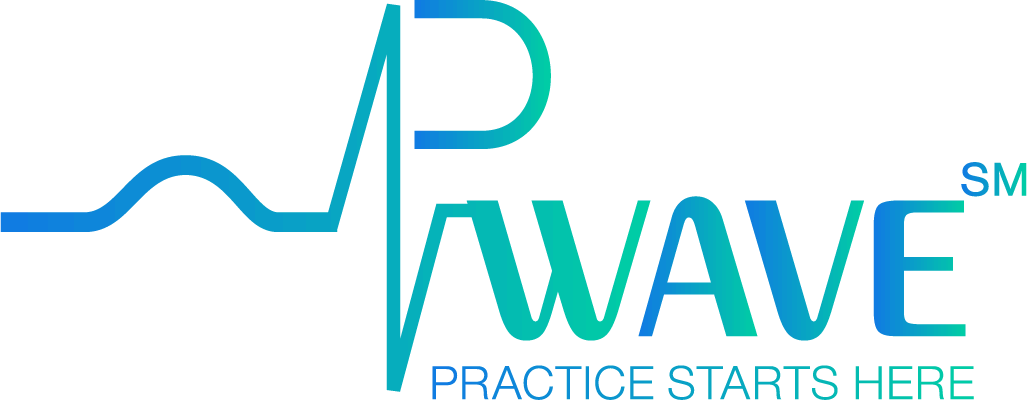Yes, healthcare CRM software may be accessed from various devices and platforms. Most healthcare CRM software is cloud-based, which means it can be accessed from any device with a web browser, such as computers, smartphones, and tablets. This enables seamless communication and collaboration among healthcare workers, regardless of their location or equipment. Furthermore, several healthcare CRM software provides downloadable mobile apps for convenient access on the road.
List of 20 Best Healthcare CRM Software
Salvonic HIMS Cloud is a Health Care Software that provides a comprehensive solution for all areas of hospital management. With advanced features such as OPD, IPD, E-Prescription, OT management, Billing, EMR, and Vaccination, this software caters to...Read More Salvonic HIMS Cloud
Pwave Insurance is a Insurance ERP solution designed to revolutionize the claims processing journey for medical insurance companies globally. Our advanced platform eliminates the hassle of physical document transfer and simplifies the approval proces...Read More Pwave Insurance
Pwave Chem solution for pharmacists to effectively manage their store from any location. Our user-friendly app helps track inventory expiry dates, prevent theft, and ensures regular inventory checks. With Pwave Chem, streamline your operations and ha...Read More Pwave Chem
Pwave Clinic Management System, the most advanced software solution for your clinic. Our team of experts guarantees seamless operations by efficiently handling accounting, patient queues, and appointments for multiple doctors in your clinic. Maximize...Read More Pwave Clinic Management System
Evariant is a top-notch Healthcare CRM software that optimizes documentation, leverages business intelligence, and facilitates impactful multi-channel marketing initiatives. Our primary goal is to enhance communication and strengthen patient-provider...Read More Evariant
Veeva CRM, the top choice for Healthcare CRM solutions. Our platform streamlines engagement with medical associations through advanced features such as order management, chatter collaboration, and mobile app integration. With Veeva CRM, you can effor...Read More Veeva
NuEra EMR is solution for boosting your sales and streamlining your operations. With its advanced tools for analyzing customer purchasing patterns and offering targeted discounts, you can drive revenue like never before. Plus, features like cash and...Read More NuEra EMR
d2i, data analytics solution designed to help healthcare organizations effectively manage emergency department overcrowding, improve quality measures, and enhance revenue cycles. Stay ahead of the ever-evolving healthcare landscape with advanced insi...Read More d2i
Salesboom CRM is a sales automation solution that elevates sales team performance and drives profitability. Our versatile SFA software equips businesses with the essential tools to thrive in a competitive market. With convenient cloud-based access, s...Read More Salesboom CRM
Health Gennie, a hospital management software designed to optimize your operations. Our solution includes OPD and IPD management, as well as integrated pharmacy, lab, and radiology management for seamless coordination. With customizable features, Hea...Read More Health Gennie
ephr solution for effortless management of your health data. Keep all your medical records in one secure and convenient place, making it easier to access and monitor your conditions. With ephr, you can have a better understanding of your overall heal...Read More ephr
Runo is a Call Management CRM that will transform your telecalling procedures. Experience a remarkable 70% contact ratio and double your sales conversions in just 30 days. With SIM-based call management, auto-dialing capabilities, and live analytics,...Read More Runo
eHealthFlex, a premier healthcare provider that offers a complete solution for optimized health management. Our cutting-edge platform prioritizes superior services and promotes collaborative learning, allowing for effortless delivery of healthcare se...Read More eHealthFlex
Lightning Step is a solution crafted specifically for treatment facilities by industry experts in behavioral health. By combining EMR, CRM, and RCM capabilities into a single platform, Lightning Step streamlines and simplifies your practices operatio...Read More Lightning Step
Pwave Patho is a information management tool designed specifically for Pathology. Our software offers advanced features suitable for all types of organizations, including small labs and large multi-specialty hospitals. Simplify your processes and boo...Read More Pwave Patho
Evolent Aldera, the premier healthcare CRM solution designed to optimize processes and decrease expenses. Through advanced customer engagement and API services, it enables organizations to increase productivity and mitigate risks. This robust platfor...Read More Evolent Aldera
Influence Health is a Healthcare CRM solution designed for healthcare marketers. Gain valuable insights on your target customers in real-time and execute comprehensive multi-channel campaigns effortlessly. With powerful reporting tools at your finger...Read More Influence Health
Syapse is a healthcare platform dedicated to providing individualized treatment options for individuals battling cancer. Our state-of-the-art technology empowers us to enhance patient outcomes, reduce expenses, and garner social media and network fun...Read More Syapse
Drucare ONE, the all-inclusive patient-centered system designed to simplify the healthcare journey, from pre-appointment to chronic care management. With Drucare, healthcare facilities can easily shift to a digital platform and securely connect with...Read More Drucare ONE
Physio Plus Tech is the Health-IT solution designed specifically for physiotherapy practices in India. Our advanced cloud-based platform offers a wide range of services, including efficient appointment scheduling, accurate physiotherapy assessments,...Read More Physio Plus Tech
Learn More About Healthcare CRM Software
- What Is Healthcare CRM Software?
- What Are The Recent Trends In Healthcare CRM Software?
- Benefits Of Using Healthcare CRM Software
- Important Factors To Consider While Purchasing Healthcare CRM Software?
- What Are The Key Features To Look For In Healthcare CRM Software?
- Why Do Businesses Need Healthcare CRM Software?
- How Much Time Is Required To Implement Healthcare CRM Software?
- What Is The Level Of Customization Available In Healthcare CRM Software?
- Which Industries Can Benefit The Most From Healthcare CRM Software?
- Conclusion
What Is Healthcare CRM Software?
Healthcare CRM software is a strong tool that helps the healthcare business manage client interactions and improve patient care. It simplifies operations like appointment scheduling, patient communication, and data administration, while also delivering useful insights and analytics for better decision-making. One of the key aspects of healthcare CRM software is the centralization and organization of patient data, such as demographics, medical history, appointment history, and communication history.
This enables healthcare workers to obtain a comprehensive understanding of their patients and deliver personalised care. Another important feature of healthcare CRM software is its communication capabilities. Healthcare professionals can easily communicate with patients via email, SMS, and patient portals for appointment reminders, follow-ups, surveys, and marketing initiatives.
This not only enhances patient engagement but also boosts patient satisfaction. Furthermore, healthcare CRM software enables quicker appointment scheduling, which benefits both patients and doctors. Patients can make appointments online, and healthcare providers can conveniently manage their schedules, lowering the likelihood of double bookings and no-shows.
Furthermore, some healthcare CRM software contains marketing automation technologies, which allow healthcare providers to target and reach out to potential patients through targeted campaigns, improving the likelihood of turning them into loyal clients. Aside from these critical aspects, healthcare CRM software provides comprehensive reporting and analytics capabilities, enabling healthcare professionals to collect and analyze data in order to make informed decisions. This can help to improve patient happiness, highlight areas for improvement, and enhance the entire patient experience.
What Are The Recent Trends In Healthcare CRM Software?
CRM (Customer Relationship Management) software has advanced significantly in recent years, particularly in the healthcare business. This software category, which was formerly primarily utilized by corporations in other industries, has evolved into a vital tool for healthcare practitioners and organizations.
In this buyer's guide, we'll look at the latest trends in healthcare CRM software and how they can help your firm.
1. Personalization And Patient Engagement: One of the most notable trends in healthcare CRM software is the emphasis on personalization and patient interaction. With the rise of consumer-driven healthcare, patients expect a more personalized and easy experience. Healthcare CRM software enables providers to track patient interactions and preferences, resulting in targeted communication and services that improve patient happiness and retention.
2. Integration With EHR Systems: Healthcare CRM software is also becoming more integrated with electronic health record (EHR) systems. This integration enables simplified data sharing and a more complete picture of the patient's health, resulting in more effective and efficient care management. Furthermore, CRM software may monitor patient interactions with the EHR system, providing information about patient engagement and compliance.
3. Data Analytics And AI-Powered Tools: As the volume of health data grows, healthcare CRM software incorporates advanced data analytics and AI-powered solutions. These systems can sift through massive volumes of data, such as patient demographics, preferences, and behaviors, to reveal insights into patient requirements and expectations. This information can then be utilized to tailor communication, create targeted marketing initiatives, and enhance patient outcomes.
4. Mobile Access And Telehealth Capabilities: As technology advances, mobile devices and telehealth services are becoming increasingly popular in healthcare. In response, healthcare CRM software is now including mobile-friendly interfaces and telemedicine capabilities. This enables providers to interact with patients using their preferred devices and give virtual consultations, hence improving patient accessibility and convenience.
5. Emphasis On Security And Compliance: As cyber-attacks become more common in the healthcare industry, CRM software suppliers place a high value on security and compliance. This includes HIPAA compliance and data encryption to safeguard sensitive patient information. As healthcare regulations vary, it is critical to select CRM software that can adapt and comply with the changes.
Benefits Of Using Healthcare CRM Software
Healthcare CRM software is a strong tool that may help healthcare companies of any size. This program was created primarily to streamline and improve client relationship management in the healthcare business. Healthcare CRM software can help firms improve patient satisfaction while also increasing efficiency and lowering expenses.
We'll go over the advantages of adopting healthcare CRM software and how to make an informed decision for your organization's needs.
1. Improved Patient Experience: The major purpose of healthcare CRM software is to increase patient happiness. It helps healthcare organizations to track patient contacts, appointments, and preferences, allowing them to create a more personalized experience for each patient. This can lead to improved patient loyalty and word-of-mouth recommendations, leading in organizational growth.
2. Increased Efficiency: Healthcare CRM software enables healthcare firms to automate operations such as appointment scheduling, patient reminders, and follow-ups, hence decreasing staff workload. It also provides easy access to patient information, decreasing administrative work and freeing up staff to focus on providing great care.
3. Improved Communication: Effective communication is critical in the healthcare industry, and healthcare CRM software enables seamless communication among patients, physicians, and staff. It allows patients to communicate quickly with their healthcare providers, making it easier to address any issues or questions they may have. It also enables physicians to work with other healthcare providers, resulting in better teamwork and patient care.
4. Data Analytics: Healthcare CRM software includes data analytics solutions that help firms get significant insights into patient demographics, preferences, and behavioral trends. This enables more targeted marketing, increased patient engagement, and better overall decision-making for the company.
5. Customizable Solutions: Every healthcare business has different needs and requirements. Healthcare CRM software offers customizable solutions, allowing firms to tailor the program to their specific requirements. This guarantees that the firm gets the most out of the program and can effectively achieve its objectives.
6. Cost Savings: Implementing healthcare CRM software can lead to significant cost savings for healthcare organizations. Organizations can save time and money by boosting efficiency, lowering administrative responsibilities, and increasing patient retention, all of which have a beneficial influence on the bottom line.
Important Factors To Consider While Purchasing Healthcare CRM Software?
When selecting healthcare CRM software, it is critical to carefully analyze a variety of aspects to ensure that you get the best option for your firm. With the growing demand for effective patient data and communication management, selecting the correct CRM software can greatly improve your healthcare services.
Here are some crucial considerations when selecting healthcare CRM software:
1. Industry-Specific Features: When selecting a healthcare CRM, make sure it has features that are specific to the industry. These features may include patient data management, appointment scheduling, and electronic medical record (EMR) integration. Make sure to prioritize the features that are essential to your company and fit into your workflow.
2. Scalability: As your healthcare business grows, your CRM software should be able to scale with it. Consider your organization's size and planned growth, and select a CRM solution that can meet your future needs.
3. Data Security And Compliance: Given the volume of sensitive patient data, it is critical that the CRM software you use is consistent with healthcare data security requirements such as HIPAA. The software should include safeguards in place to protect patient information and avoid data breaches.
4. Integration Capabilities: A healthcare company may use several systems and software to manage a variety of functions. Your CRM software should be able to interact easily with other systems to prevent job duplication and create a smooth workflow.
5. User-Friendly Interface: When selecting CRM software, make sure it is easy to use and browse. A confusing interface can make it difficult for your personnel to adapt the program, resulting in workflow disruptions and inefficiencies.
6. Customer Support And Training: When selecting CRM software, examine the level of support and training offered by the provider. To ensure a seamless setup and continuous use of the software, a reliable vendor should provide comprehensive training as well as outstanding customer support.
7. Cost: The price of the software is another important issue to consider. Healthcare CRM software systems can range from simple to complex, with various prices. Before making a decision, compare the software's features, support, and scalability against its pricing.
What Are The Key Features To Look For In Healthcare CRM Software?
When deciding on the best Healthcare CRM Software for your firm, some critical elements must be considered to enable successful patient information management and an improved overall patient experience.
Here are the key things to look for in Healthcare CRM Software:
1. Patient Database Management: The program should be able to construct and manage a comprehensive database of patient information, such as contact information, medical history, appointments, and so on. This will assist to streamline patient information and provide more personalized care.
2. Integration With Electronic Health details (EHR): The healthcare CRM software should be fully integrated with existing EHR systems, providing for simple access to patient details while reducing data entry duplication.
3. Appointment Scheduling: Look for software that provides personalized appointment scheduling options, such as reminders, follow-ups, and automated appointment confirmation. This will help to improve patient involvement and reduce no-shows.
4. Communication Tools: A good healthcare CRM software should have tools such as secure messaging and video conferencing to help patients and healthcare practitioners communicate more effectively, expediting the process and increasing patient satisfaction.
5. Billing And Payment Management: To improve the revenue cycle management process, use software that incorporates billing and payment management features such as online payment alternatives and insurance verification.
6. HIPAA Compliance: Use CRM software that complies with the Health Insurance Portability and Accountability Act (HIPAA) to preserve and secure patient data.
7. Configurable Dashboards And Reports: Look for software that provides configurable dashboards and reports for tracking patient information, appointments, revenue, and other metrics. This will help you make better judgments and discover areas for improvement.
8. Mobile Accessibility: In today's digital world, healthcare CRM software that supports mobile access is essential. This would enable healthcare providers to access and update patient information on the road, enhancing efficiency and productivity.
9. Training And Assistance: Look for software that provides full training as well as ongoing technical assistance to ensure that it is implemented and used correctly. This maximizes the software's benefits while also ensuring a solid return on investment.
Why Do Businesses Need Healthcare CRM Software?
Healthcare CRM software is a strong tool that helps healthcare firms optimize operations and improve patient experience. As the healthcare industry expands and becomes more competitive, it has become critical for firms to invest in dependable CRM software. One of the primary reasons why firms use healthcare CRM software is to effectively manage patient data.
With the increase in data gathering and analysis, traditional ways of organizing and storing patient information have proven ineffective and error-prone. Healthcare CRM software provides a consolidated database for securely storing patient data, making it conveniently accessible and retrievable. Healthcare CRM software not only manages patient data but also helps firms automate their marketing and communication initiatives.
Businesses may simply reach out to patients and keep them up to date on crucial information such as appointment reminders, healthcare recommendations, and promotions by using tools like email and text message marketing. This not only boosts patient involvement, but also consumer retention and loyalty. Furthermore, healthcare CRM software enables firms to tailor their interactions with patients.
Businesses that keep track of patient choices and interactions can tailor their communications and give a more personalized experience. This level of customisation can help create rapport and trust with patients, resulting in a better overall experience and higher patient satisfaction. Another significant feature of healthcare CRM software is its potential to boost operational efficiency.
Healthcare CRM software alleviates the strain on administrative personnel by providing features such as appointment scheduling, automatic appointment reminders, and patient-physician communication capabilities, allowing them to focus on more vital activities. This not only saves time and resources, but also promotes a more streamlined and efficient process.
Finally, healthcare CRM software offers useful insights and analytics to assist firms make data-driven decisions. Businesses can uncover patterns and trends in patient data, which they can then use to improve their services and the patient experience. This data can also be used to track the effectiveness of marketing campaigns and make changes to improve results.
How Much Time Is Required To Implement Healthcare CRM Software?
The time required to adopt healthcare CRM software varies based on a number of factors, including the size of the business, the complexity of the program, and the organization's readiness for change. On average, the implementation process takes 3 to 12 months, with larger enterprises requiring longer time. The initial step in the implementation process is to gather requirements and understand the organization's specific needs.
This may include consulting with multiple departments and stakeholders to determine the features and functionalities required for the software to effectively support the organization's aims. Once the criteria have been identified, the next step is to choose an appropriate CRM software and negotiate the contract. This can take several weeks to a few months, depending on the software's complexity and the number of vendors under consideration.
Following the contract's completion, the implementation phase begins, which includes installing the software, customizing it to match the organization's requirements, and integrating it with existing systems. This phase can last anywhere from three to six months, depending on the software's level of customisation and complexity. Once the software has been installed and tested, training for employees and stakeholders is provided to guarantee a smooth transfer to the new platform.
This can take several weeks to a few months, depending on the amount of users and their technological knowledge. Finally, the go-live step marks the software's official launch, and the company begins utilizing it to manage customer connections and data. This phase might run from a few weeks to a few months, depending on the amount of training and any necessary changes or fine-tuning.
Overall, implementing healthcare CRM software necessitates a large commitment of time and resources. However, with careful planning and a motivated team, the process may be finished quickly, resulting in a more streamlined and successful healthcare business.
What Is The Level Of Customization Available In Healthcare CRM Software?
Healthcare CRM software provides a variety of features to help healthcare businesses manage interactions with patients, providers, and other stakeholders. One crucial factor to consider when selecting a healthcare CRM is the level of customization provided. Customization enables software to be adjusted to the specific demands and workflows of a healthcare institution.
The level of flexibility offered in healthcare CRM software varies greatly across providers. Some CRM software solutions use a one-size-fits-all approach, with little customization choices. These methods may work for certain companies, but many healthcare professionals and facilities have unique needs that cannot be handled by a standardized system.
On the other hand, CRM software platforms provide a great level of customization. These platforms allow users to adapt the program to meet their individual requirements, such as adding and removing functionality, generating new templates, and integrating with other systems. This amount of flexibility can be useful for healthcare organizations since it allows them to tailor the software to their specific workflows and processes.
Another item to consider is the level of customisation. Some healthcare CRM software requires coding or substantial technical knowledge to customize, rendering it inaccessible to non-technical users. Others provide a user-friendly interface with drag-and-drop customization, allowing users to make changes without scripting.
It is critical to determine the extent of customisation possible based on your organization's specific needs. Determine which features and functionalities are required for your workflows and procedures, and make sure the CRM software can be adapted to meet them. Consider how easy it is to customize and whether it is compatible with your team's technological capabilities.
Which Industries Can Benefit The Most From Healthcare CRM Software?
Healthcare CRM software has become an indispensable tool for healthcare firms seeking to improve their customer relationship management strategy. This program, designed exclusively for the healthcare industry, includes a variety of features that can assist firms in streamlining processes, improving patient happiness, and increasing income. However, not all healthcare sectors can profit equally from CRM software.
Let's explore, which sectors can gain the most from using healthcare CRM software.
1. Hospitals And Healthcare Systems: Hospitals and health systems are probably the most obvious beneficiaries of healthcare CRM software. These firms deal with the most extensive and intricate patient relationships, so they require a comprehensive CRM solution. Healthcare CRM software enables hospitals and health systems to track patient contacts across many touchpoints, such as appointments, consultations, and follow-ups. This enables them to deliver tailored care and establish strong patient relationships, leading to increased patient satisfaction and retention.
2. Medical Practices: Medical practices, such as clinics and specialized centers, serve a broad patient population and frequently struggle to maintain track of patient data and communication. Healthcare CRM software can help these clinics streamline their operations by automating functions like appointment scheduling, patient communication, and feedback gathering. This saves time for healthcare providers while also ensuring that patients receive prompt and individualized care.
3. Pharmaceutical Firms: Pharmaceutical businesses confront distinct hurdles when managing relationships with healthcare providers and patients. These companies can use healthcare CRM software to track their contacts with physicians, pharmacists, and other stakeholders. They can also segment their customers based on their requirements, preferences, and purchasing habits, allowing them to tailor their marketing efforts more efficiently. Additionally, healthcare CRM software can help with compliance monitoring, adverse event reporting, and sales analytics, making it an important tool for pharmaceutical companies.
4. Medical Device Makers: Medical equipment businesses, like pharmaceutical companies, can profit from employing healthcare CRM software. These organizations frequently have complex sales processes and lengthy sales cycles, making it difficult to track prospects and convert them into clients. Healthcare CRM software may help them manage their sales pipeline, track client interactions, and gain data-driven insights to better their sales strategy. It can also assist manufacturers remain on top of field service, warranty, and repair demands, leading in higher customer satisfaction.
5. Third-Party Healthcare Vendors: Third-party healthcare suppliers, such as medical billing businesses, health IT companies, and revenue cycle management firms, also require strong CRM solutions to handle their relationships with healthcare organizations. These suppliers can use healthcare CRM software to track their engagements, manage client data, and monitor service-level agreements, ensuring that they give excellent support to their clients.
Conclusion
To summarize, selecting the correct healthcare CRM software is critical for any healthcare firm seeking to improve patient engagement, streamline operations, and boost overall productivity. Before making a purchase, conduct extensive research and examine factors such as features, integrations, price, and customer support. The leading healthcare CRM software suppliers on the market offers a variety of features tailored exclusively to the healthcare business, such as patient portals, appointment scheduling, and secure messaging. It is critical to examine your organization's specific needs and select software that can meet them efficiently.
Integration with other healthcare systems, such as electronic health records (EHRs), is also an important factor. A seamless connection of CRM software and other systems can significantly improve workflow and data management. Another major consideration is cost. While adopting healthcare CRM software may entail a considerable financial investment, it is critical to examine the long-term benefits and ROI. It may also be useful to use cloud-based software, which can save money and allow greater accessibility.
Finally, paying attention to customer assistance is critical to ensuring that the product is implemented and used smoothly. Look for a provider who provides consistent and timely support, as well as training and resources to help your organization get the most out of the program. To summarize, by properly examining your organization's requirements and taking into account variables such as features, integrations, cost, and customer service, you can make an informed decision and select the best healthcare CRM software for your firm. With the appropriate software in place, you can improve patient satisfaction, increase productivity, and ultimately boost the overall success of your healthcare company.
Healthcare CRM Software FAQ's
Can Healthcare CRM Software Be Accessed Across Multiple Devices And Platforms?
Is Healthcare CRM Software Future-Proof And Adaptable To Emerging Technologies Like AI, Blockchain Or IoT?
Yes, healthcare CRM software is intended to be future-proof and adaptable to new technologies like AI, blockchain, and IoT. These software systems are continually being upgraded to include new technologies and features that enhance patient care and overall efficiency.
With the growing usage of technology in healthcare, CRM software is an essential tool for healthcare firms to stay competitive and provide high-quality services. This ensures that healthcare CRM software is always relevant and valuable in the ever-changing healthcare business.
Is There A Free Trial Offered To Assess Healthcare CRM Software Before Committing?
Yes, many healthcare CRM software companies provide free trial periods so that potential clients can evaluate the program before making a commitment. During the trial period, users can examine the software's features and capabilities to see if it satisfies their specific requirements. This is an excellent opportunity for healthcare organizations to confirm that the CRM software is a good fit for their needs prior to making a financial investment.
Does Healthcare CRM Software Offer Data Security Features And Meet Regulatory Compliance Standards?
Yes, most healthcare CRM software has advanced data security safeguards to safeguard sensitive patient information. They use encryption, access controls, and regular data backups to maintain confidentiality and prevent illegal access.
Furthermore, many systems are built to meet regulatory standards like as HIPAA, GDPR, and CCPA, ensuring that healthcare firms fulfill their legal commitments. These security and compliance measures not only safeguard patient data, but also foster trust and credibility among patients and regulatory bodies.
Can Healthcare CRM Software Integrate Seamlessly With Existing Tools And Platforms?
Yes, most healthcare CRM software is designed to interact seamlessly with existing tools and platforms in the healthcare business. This includes electronic health records (EHR), patient portals, billing systems, and more. This seamless connectivity enables effective data sharing and process optimization, ultimately leading to improved patient care and efficiency. It also avoids the need to switch to an entirely new system, saving time and resources.


